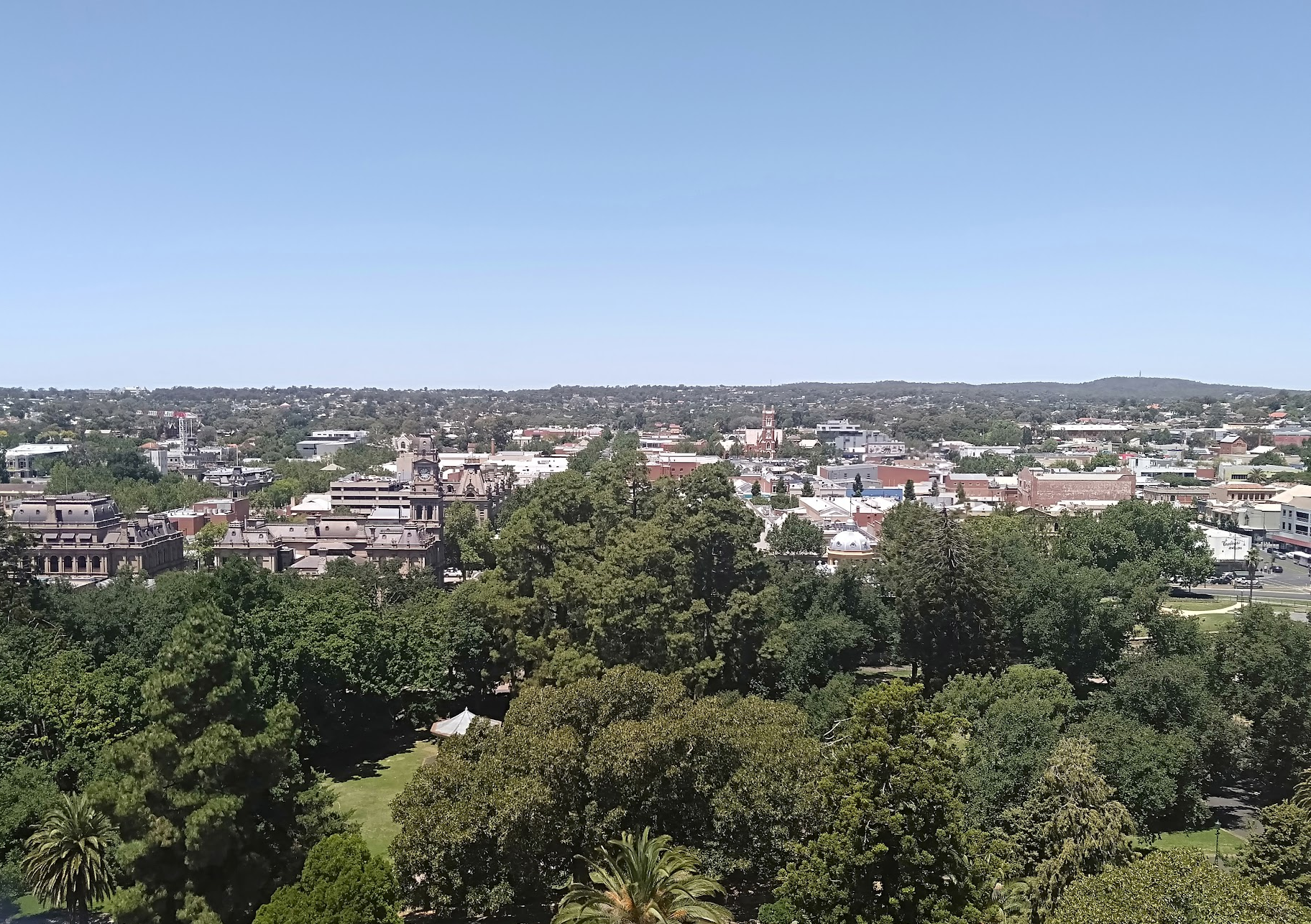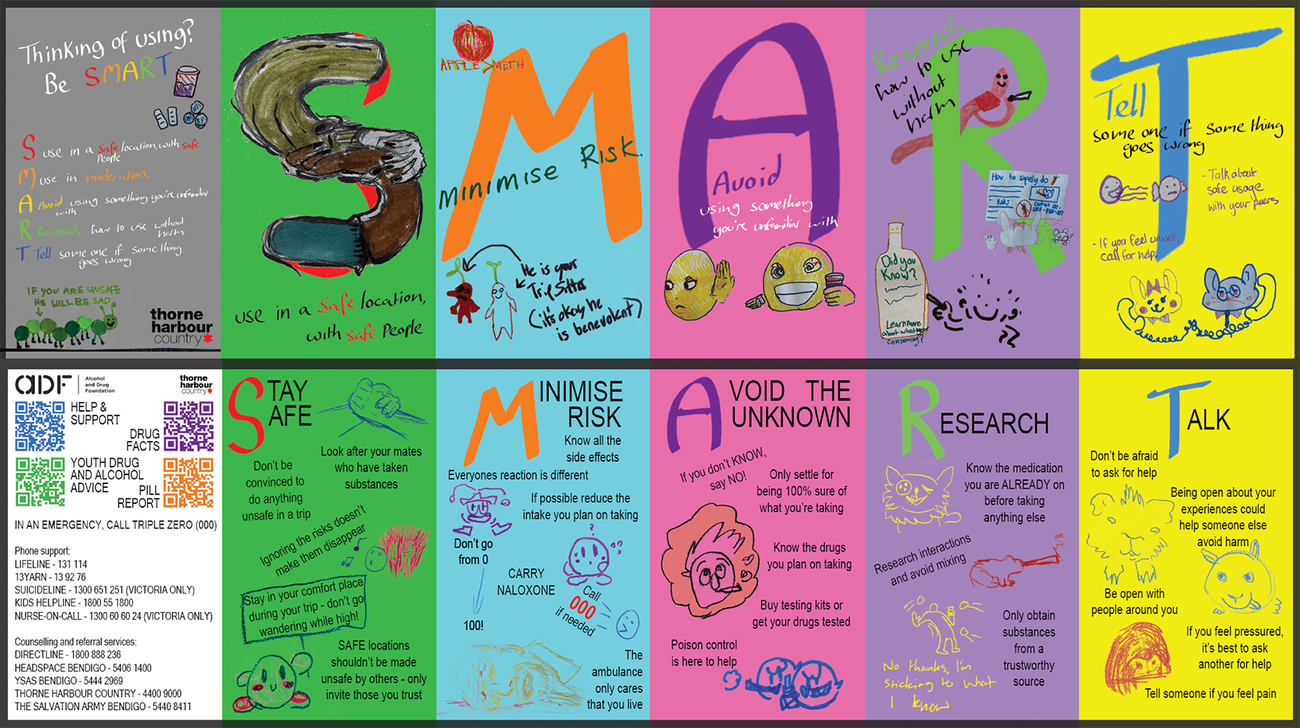
Spotlight: Long-term LDAT supporting LGBTIQ+ youth
Regional Victoria LGBTIQ Local Drug Action Team (LDAT) is based in Bendigo, a regional Victorian city a couple of hours north of Melbourne.
The LDAT is led by Thorne Harbour Country, an organisation that provides a range of services and programs to support the health and wellbeing of LGBTIQ+ people and people living with HIV.
Thorne Harbour has been a vital service for the LGBTIQ+ community since the 1980s, when it was known as the Victorian AIDS Council. It changed its name to Thorne Harbour in 2018, to honour two prominent figures in the organisation's history and reflect its broader role in the community.
The organisation has been part of the LDAT program since it launched in 2017.
The challenge
LGBTIQ+ communities generally experience more harms from alcohol and other drugs (AOD) than the general population. And, in a regional area like Bendigo and surrounds, AOD services can be more difficult to access.
For LGBTIQ+ young people, who still face discrimination for their sexuality or gender identity, finding a sense of community and a space they belong can be difficult.
And a lack of belonging or feeling connected is a known risk factor for AOD harm.
The Regional Victoria LGBTIQ LDAT is working to address this issue for their local community in a creative way.
The response
In its fifth Community Action Plan (CAP) throughout 2022 and 2023, Thorne Harbour collaborated with local services, guest speakers and young people to create a harm reduction wallet card.
They worked with a range of stakeholders who identified young people who could be involved in the project, many of whom were already attending Yo Bendigo, headspace Bendigo or headspace’s two youth groups - Tadpoles and Frogs.
“Through a range of workshops and forums, we engaged in an age-appropriate way with the young people around AOD types,” explained Damien Stevens-Todd, Thorne Harbour Country Program Manager and LGBTIQ+ Specialist Mental Health Manager.
“It gave us a good opportunity to proactively educate young people who were not yet using AOD about harms, risks and identifying what substances were.”
In some instances, when young people were already using, Thorne Harbour was able to provide referral pathways and support.
“We equip them with knowledge and power and give them some agency.”
The info sessions included guest speakers, like youth or support workers, who are safe and trusted sources of information.
“We had evidence that young people were benefiting from the peer knowledge sharing, mentoring and support that older LGBTIQ+ folk were providing; improving their mental health and wellbeing and strengthening these protective factors.”
Through the workshops, the young people created the ‘SMART’ wallet card, which stands for: Stay safe, Minimise risk, Avoid the unknown, Research and Talk.
The card aims to reduce shame and stigma around talking about AOD. It has info on who to call for support, interactions and mixing drugs, and how to research what you’re taking.
“It was a wonderful opportunity for the young people to be creative. During those workshops they drew all kinds of cartoon characters and used words and symbols that held meaning for them,” said Damien.
In its follow-up Community Action Plan, (CAP number six in 2024), the LDAT’s goal was to distribute 3,500 SMART wallet cards to LGBTIQ+ community members at ten community events across the Loddon Mallee region.

The progress
Throughout the first half of 2024, Thorne Harbour attended ten events including Pride festivals at Bendigo, Castlemaine, Maryborough, and La Trobe.
“For example, we went to Bendigo Pride and had a stall there where we were giving out things like keyrings, condoms, other resources,” said Damien.
“And it wasn’t just events, like festivals and carnivals, we also went to schools and youth expos. When we visited the Neighbourhood House for a meeting, we would leave 20-50 cards there for the young people who came through later.”
By the end of the CAP in mid-2024, they had engaged with 13 community organisations such as youth groups, health services and LGBTIQ+ services – exceeding the original target of ten.
The LDAT also hit their impact measure targets, with 100% of LDAT partnership group members and stakeholders reporting an increased knowledge of the AOD harms experienced in the community, and 100% of the LDAT partnership group members and stakeholders committed to the planning and delivery of the next CAP.
This included stakeholders from towns as far as Echuca, Ballarat, Bendigo, Castlemaine, Kyneton, Inglewood, Shepparton, Maryborough, Rochester, Heathcote and Daylesford.
The Regional Victoria LGBTIQ Local Drug Action Team is now delivering its seventh CAP – Rainbow Generations, a series of six or more workshops to continue conversations about reducing AOD harms.
They’re also running events that provide social connection and improved health and wellbeing through pride, visibility and affirming gender.
“The new CAP has been based on what we learnt from the previous ones. This feeling of connectedness to peers and other participants – we realised we needed to do more of this,” explained Damien.
“The young people shared with us that AOD-free events and spaces are what they wanted more of; events where they could feel safe and affirm who they are.”
The events the LDAT is delivering align with dates on the LGBTIQ+ calendar, like IDAHOBIT or Wear It Purple Day.
For IDAHOBIT on May 17, the LDAT set up a clothes swap and makeup come-and-try day. It was an AOD-free event with flag raising and food alongside the clothes swap.
Queer elders, Rainbow Community Angels (trained volunteers who support community safety) and LGBTIQ+ sector regional workforce attended.
“These adults collectively provided conversations, wisdom and knowledge to the young people – showing how you can still be 40, 50, 60 or 70 and enjoy AOD-free events.”
While the program is focussed on young people, the LDAT is also seeing the benefits for elders.
According to Damien, some older people worry about the stigma they might face from the broader community when interacting with young people because of historic criminalisation and homophobia.
“The intergenerational program is giving the older people some healing and therapeutic benefits, making them feel very much a part of the community. It goes both ways – building strong healthy relationships, sharing these events and learning across the generations.”
Advice to other LDATs
Damien’s advice to other LDATs is to use the local evidence and resources they have at hand, and to engage with the people and orgs in their communities.
"Feel the fear and do it anyway! Whether you're a community group, sports club or grassroots organisation, plenty of others will share your passion and want to join you, support you and cheer you on as you focus on preventing and minimising alcohol and other drug-related harm, inspiring leadership and strengthening communities.
“Improving wellbeing and building the capacity of your area to make a difference is a great thing to be a part of.”
To other LDATs planning to run a similar activity with young people, Damien stresses that you don’t need to be an expert – you can lean on the Alcohol and Drug Foundation (ADF) team for support in creating your place-based approach.
"The team at ADF have been fantastic! They go above and beyond to assist with everything from coaching you through the CAP creation process, to connecting you with local stakeholders and resources to strengthen the LDAT and its outcomes.
“They appreciate that communities are very passionate about addressing the issues unique to the people who live in the places and spaces they care about.”

